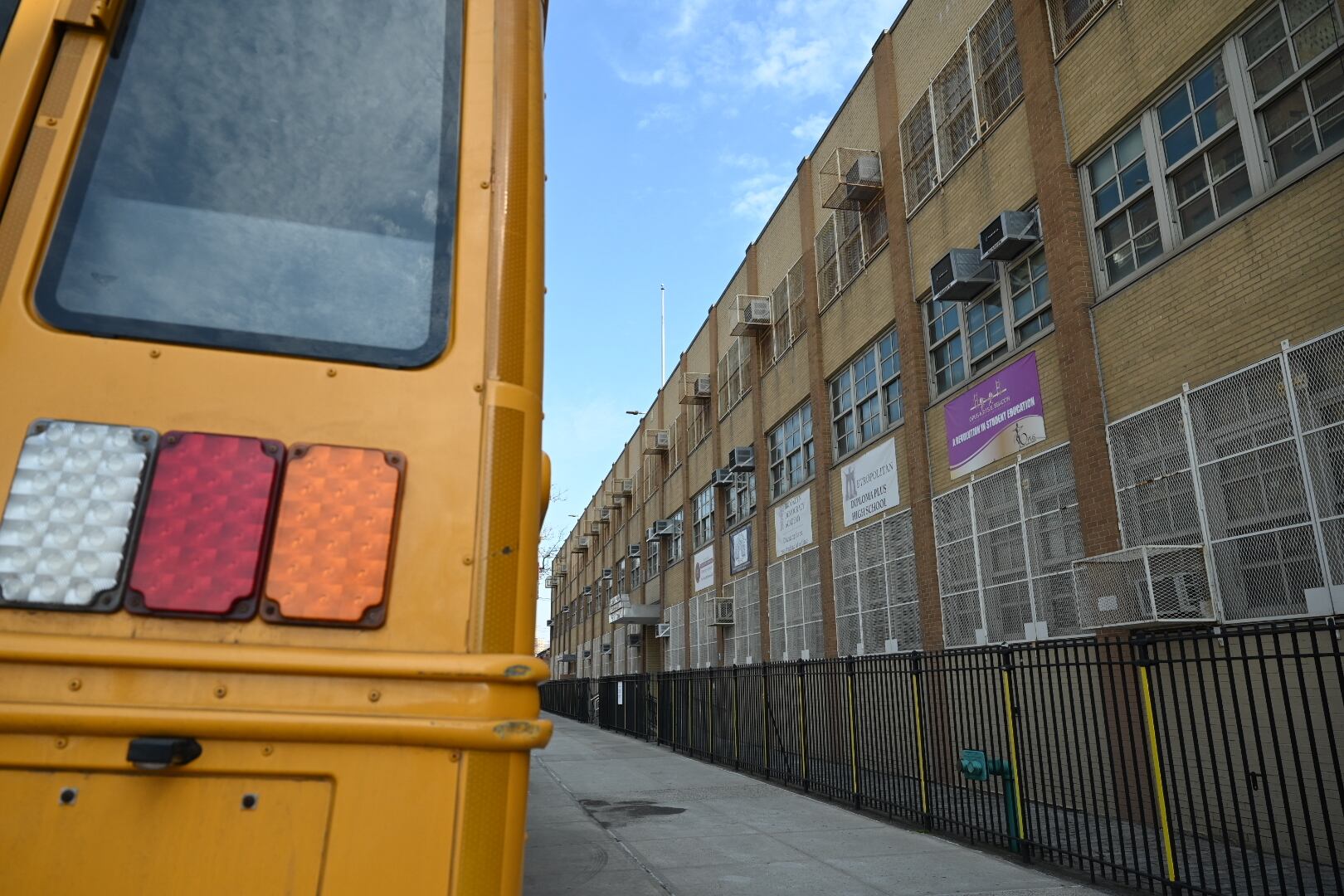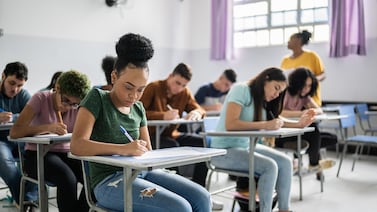School bus delays spiked this fall to levels higher than any point in the last five years, according to figures revealed during a City Council hearing Monday, representing a growing hardship for families who depend on yellow buses to ferry their children to school.
Last month alone, there were nearly 14,500 school bus delays, lasting 41 minutes on average. That’s up from about 10,600 delays averaging 37 minutes in October 2021.
Both the number — and duration — of delays last month were higher than during any other month over the last five school years, according to the City Council’s analysis, which is based on self-reported data from bus companies.
City officials emphasized that the self-reported nature of the statistics may make it unreliable and noted that the data shows heavy traffic represents a significant share of the increase in delays. But numerous advocates and elected officials said Monday that the bus system appears to be under greater strain.
“In 2018, the education committee held a hearing on [the Office of Pupil Transportation’s] failure to provide students with reliable school busing services,” Rita Joseph, the committee’s chairperson, said during an oversight hearing on school bus transportation. “The only thing that seems to have changed since that is that the problem has gotten worse.”
New York City’s school bus network is responsible for transporting roughly 150,000 students to school at a budgeted cost of $1.6 billion this year, according to the Independent Budget Office. But families have struggled for years with delayed buses, no-shows, or even getting a bus route assigned at all. Some of the city’s most vulnerable students — including 65,000 students with disabilities — are dependent on buses to transport them to programs that are often outside their immediate neighborhoods.
Late buses have wreaked havoc on Jalissa and her 6-year-old son, Deandre. The family moved to a Bronx domestic violence shelter last year, at least an hour and 15 minutes from Deandre’s elementary school in Jamaica, Queens. Last year, the bus was late so often that Jalissa was fired from her job at a food preparation and delivery company.
“My manager was really thoughtful and tried to be as lenient as he can,” she said. But “I got terminated because I was constantly late every single day” on account of the school bus delays. (Jalissa requested to be identified only by her first name to protect her privacy.)
The situation hasn’t improved this year. Despite help from Advocates for Children, a nonprofit group, Jalissa struggled to secure a bus at the beginning of the school year, even though the required paperwork was filed on time, according to her advocate. She took Deandre to school on public transportation, leaving their shelter at 6:30 a.m. for the hour and a half trip by subway and bus, trips she paid for out of pocket.
Even after Jalissa finally secured a bus roughly a month into the school year, it is almost always at least an hour late. That has left her in an impossible position, as she does not want to transfer her son to a new school. “I’m very serious about my child’s education,” she said. “I don’t want to change his school.”
At the same time, she worries about the impact of missed class and lengthy waits. Plus, the unpredictability of the bus schedule has made her reluctant to search for a new job. Frequent calls and complaints to the bus company and the education department’s Office of Pupil Transportation have not resolved the issue.
“He is still developing; he should not be a whole hour late,” she said. “Something has to change.”
At Monday’s City Council hearing education department officials said that bus driver shortages were partly to blame for disrupted service, even as officials in the previous administration insisted it wasn’t an issue. At the beginning of the school year, the system was short about 500 drivers, said Glenn Risbrook, the education department’s senior executive director of student transportation. In some cases, that forced drivers to run two routes, one after the other.
“It is often our highest needs students who are on these routes that end up without permanent drivers and thus are put in these situations,” Risbrook said. He added that the shortage has dropped to 313 drivers and the city is working with bus companies “to get qualified drivers on the roads as quickly as possible.”
But officials also acknowledged that getting drivers back on the job may be a challenge after thousands of them were furloughed in the wake of school building closures.
“They were laid off, in a worldwide pandemic, with no wages, no pension contributions, and, above all else, no health care,” said Kevin Moran, the education department’s chief school operations officer. “And so when we talk about the driver shortage and trying to bring people back into the system, we have a fair bit of work to do to re-establish trust.”
In the meantime, city officials said they are paying for rideshare services to help fill in the gaps and also pointed to a long-delayed GPS tracking system that is supposed to eventually give parents real-time information about the location of buses, help the education department create better routes, and more comprehensively track delays. (The education department is piloting the GPS system in District 26 in Queens but a spokesperson did not provide a specific timeline for rolling it out citywide.)
Advocates said the rideshare solution is imperfect because it is not always explicitly offered to families and requires a caregiver to ride with their child, often disrupting work routines.
“It doesn’t really work for all families and it doesn’t resolve the actual bus issue,” said Janyll Canals, the director of the Robin Hood Project at Advocates for Children and who testified at Monday’s City Council hearing. “Multiple families that I’ve worked with don’t know it’s an option until they come to us.”
Alex Zimmerman is a reporter for Chalkbeat New York, covering NYC public schools. Contact Alex at azimmerman@chalkbeat.org.








